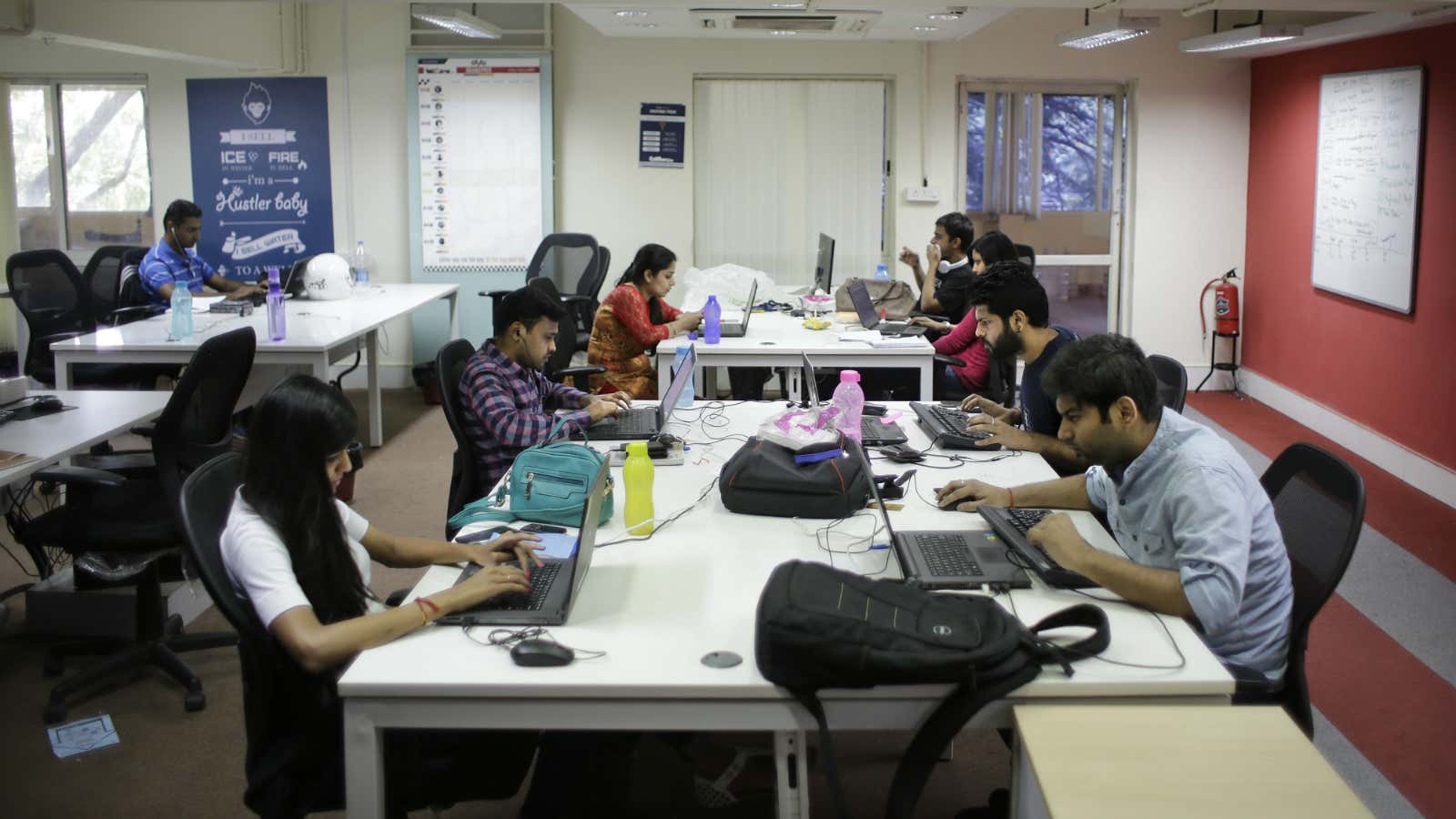The days of steep salary hikes may be over in India.
For the first time in a decade, barring in 2009 when the global economy went into a tailspin, the average salary hike in Asia’s third-largest economy is expected to slip below 10% in 2017 to 9.5%, consultancy firm Aon Hewitt forecasts. Aon Hewitt analysed data across 1,000 Indian companies to reach this conclusion.
Last year, the figure stood at 10.2%, mostly led by early-stage companies that doled out an average hike of 15.6%. This year, however, a host of factors—Brexit, the change in the US government, demonetisation, and a reduction in startup funding—have led to this significant drop.
And there’s a bigger threat looming. “If you look at the past five years, revenue growth across companies has been lower than the compensation growth,” Anandorup Ghose, a partner at Aon Hewitt, said. “There is pushback from shareholders to manage this gap.”
India however, fares much better than all countries in the Asia-Pacific, according to Aon Hewitt. For instance, salaries in China are expected to grow only by 6.9%, while in Japan the rate will be 2.4%.
Aon Hewitt also estimates that sectors like life science, chemicals, entertainment, and consumer products in the country will clock double-digit hikes for 2017. The lowest would be in financial institutions, transportation, and cement.
“While traditionally pay increases in India have not been affected by inflation rates, the significant drop in the consumer price index over the last few quarters has also been a good opportunity for companies to manage their compensation budgets,” the survey said.
Indians, meanwhile, are also changing jobs at a slower pace. In 2016, attrition stood at 16.4%, one of the lowest among emerging markets.
